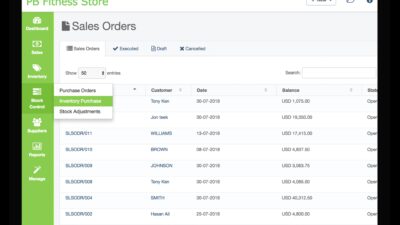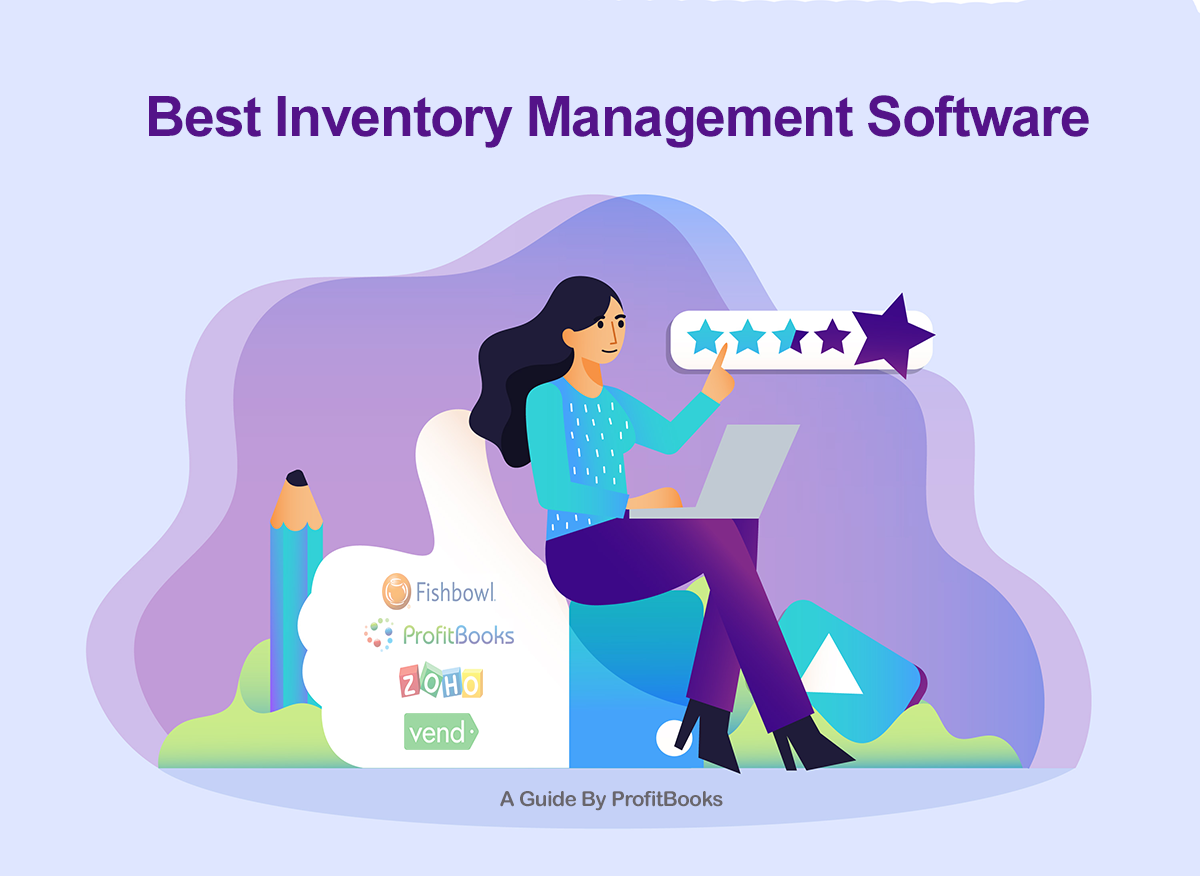
In today’s fast-paced business environment, efficient inventory management is crucial for achievement. The optimal inventory management software can streamline your operations, reduce costs, and improve customer satisfaction. But with so many options available, how do you select the right one for your business? This thorough guide will explore the key attributes, benefits, and top solutions in the industry to help you make an informed decision. We’ll delve into everything from basic inventory tracking to advanced attributes like integration with staff scheduling software and warehouse management software . Let’s dive in and discover how the right software can transform your business!
What is Inventory Management Software and Why Do You Need It? Inventory management software is a system that helps businesses track and manage their inventory levels, orders, sales, and deliveries. It offers real-time visibility into your stock levels, allowing you to maximize your inventory, reduce waste, and improve order fulfillment. In today’s rival industry, efficient inventory management is no longer a luxury, it’s a requirement. Without it, businesses risk stockouts, overstocking, and ultimately, lost revenue. Think of it as the central nervous system for your provide chain, ensuring everything runs smoothly and efficiently. Integrating it with other systems, like business automation software , can further streamline your operations.
Key attributes to Look for in Inventory Management Software. When evaluating inventory management software, consider these essential attributes: Real-time Inventory Tracking: This allows you to see exactly what you have in stock, where it’s located, and its value. Barcode Scanning: Streamlines the receiving, picking, and shipping processes. Order Management: Automates the order process from creation to fulfillment. Reporting and Analytics: offers insights into your inventory performance, helping you determine trends and make informed decisions. Integration Capabilities: Seamlessly integrates with other business systems, such as your e-commerce platform, accounting software, and CRM. Consider how well the software integrates with other tools you use, such as cloud call center software , to ensure a smooth workflow. Also, consider if the software offers robust asset tracking software attributes if you need to manage fixed assets alongside your inventory.
Top Inventory Management Software Solutions. Zoho Inventory Software: A popular choice for small to medium-sized businesses, Zoho Inventory offers a thorough suite of attributes, including inventory tracking, order management, and shipping integrations. It’s known for its user-friendly interface and affordable pricing plans. Consider how well it integrates with other Zoho products you might be using. Fishbowl Inventory: Designed for manufacturing and warehouse operations, Fishbowl Inventory offers advanced attributes such as bill of materials management, work order processing, and manufacturing resource planning (MRP). It’s a robust solution for businesses with complex inventory needs. QuickBooks Commerce (formerly TradeGecko): A cloud-based inventory management platform that integrates seamlessly with QuickBooks Online. It offers attributes such as multi-channel inventory management, order management, and reporting. Cin7: A thorough inventory management platform that offers advanced attributes such as demand forecasting, warehouse management, and e-commerce integrations. It’s a good option for businesses with complex inventory needs and multiple sales channels. Dear Inventory: A cloud-based inventory management solution that offers attributes such as manufacturing, accounting, and e-commerce integrations. It’s a good option for businesses that need a thorough solution that covers all facets of their operations.
The Importance of Integration with Other Business Systems. Inventory management software doesn’t operate in a vacuum. To maximize its efficacy, it needs to be integrated with other business systems. Here’s why: Accounting Software: Integrating your inventory management software with your business accounting software for small business ensures accurate financial reporting and eliminates manual data entry. CRM: Integrating with your CRM offers a 360-degree view of your customer, allowing you to personalize your interactions and improve customer satisfaction. E-commerce Platform: Seamless integration with your e-commerce platform ensures accurate inventory levels and prevents overselling. Staff Scheduling Software: Integrating with staff scheduling software can help maximize labor costs and ensure you have the right people in place to manage your inventory. Case Management Software: For businesses that handle service or repair, integrating with case management software can streamline the process of managing inventory related to specific cases.
Related Post : engine travel
Choosing the Right Inventory Management Software for Your Business. With so many options available, choosing the right inventory management software can feel overwhelming. Here’s a step-by-step guide to help you make the right decision: Define Your Needs: What are your specific inventory management challenges? What attributes are most crucial to you? Consider your business size, industry, and growth plans. Set a Budget: How much are you willing to spend on inventory management software? Consider both the initial cost and ongoing maintenance fees. study and Compare Options: Read reviews, compare attributes, and request demos from varied vendors. Consider factors like ease of use, scalability, and customer support. Take benefit of complimentary Trials: Most vendors offer complimentary trials or demos. This is a great way to test out the software and see if it’s a good fit for your business. Check for optimal hr software integrations if you also need to manage your workforce.
Choosing the optimal inventory management software is a critical decision for any business. By carefully evaluating your needs and considering the options discussed, you can find a solution that streamlines your operations, improves efficiency, and ultimately contributes to your bottom line. Don’t hesitate to explore complimentary trials and demos to get a feel for varied platforms before making a final decision. Remember to also consider integrating your inventory management with other crucial business tools like staff scheduling software , warehouse management software , and business accounting software for small business to create a truly unified and efficient business ecosystem.












